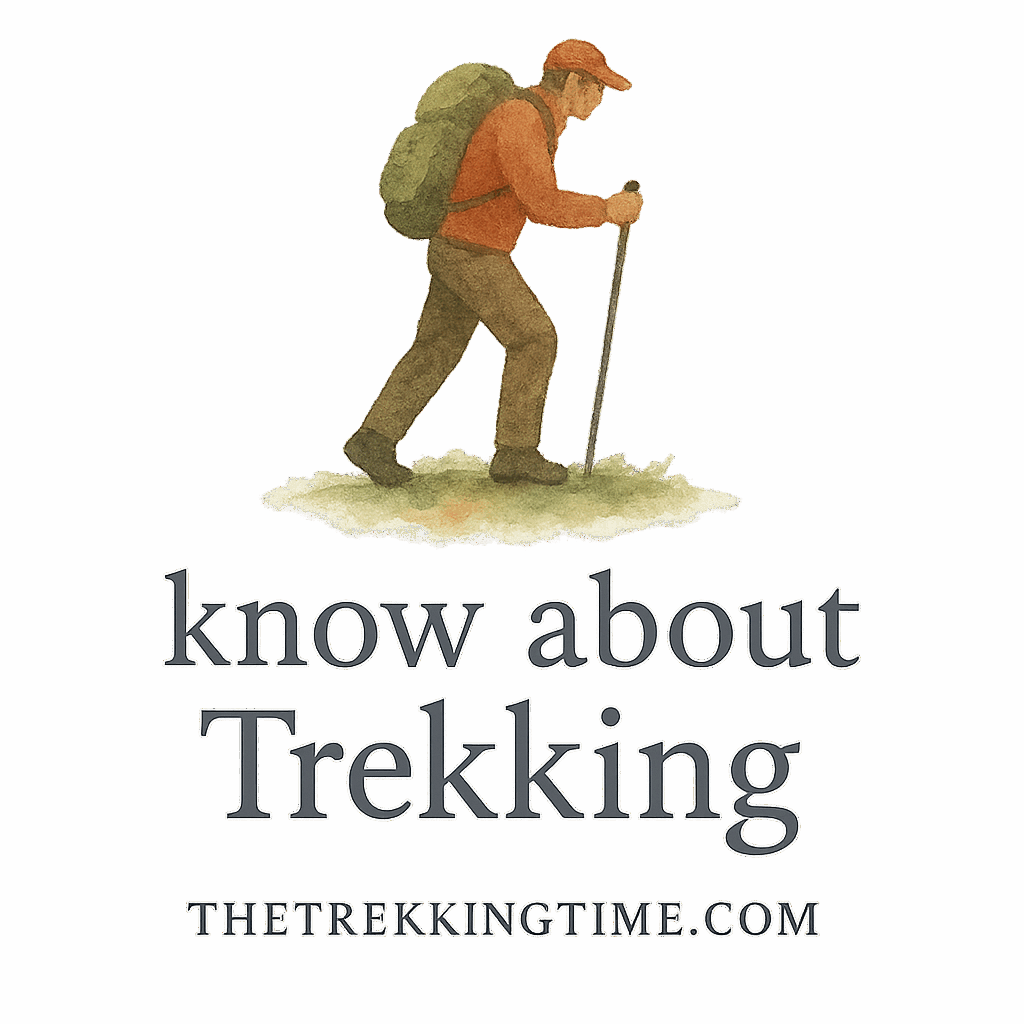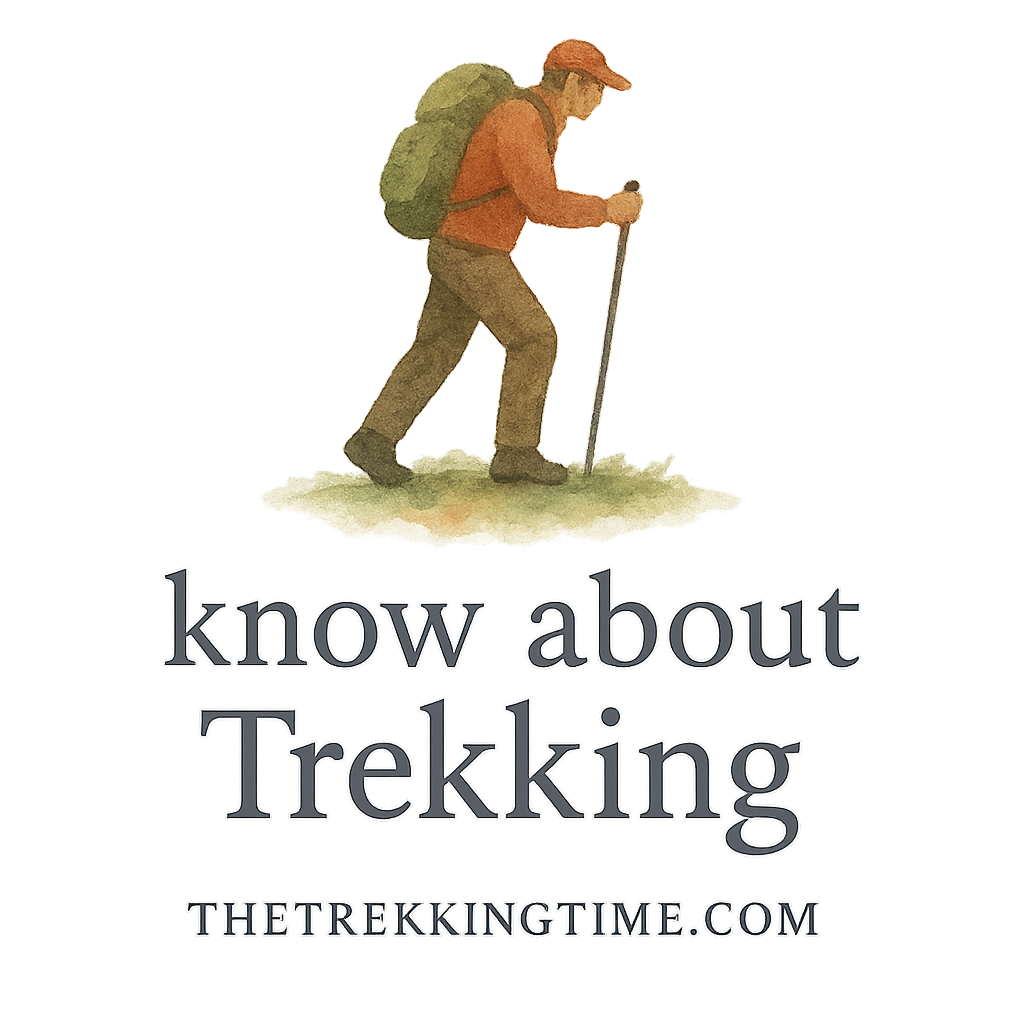Introduction
Ever feel like your phone is glued to your hand? You’re not alone. In our hyper-connected world, it’s hard to go a few minutes without checking emails, scrolling social feeds, or binge-watching the latest viral clips. But here’s the good news: trekking is the antidote your overloaded brain needs.
Trekking isn’t just about walking through the woods — it’s about reclaiming your time, mental space, and connection with the world around you. This article explores six powerful ways trekking can help you hit pause on technology and reboot your system — mind, body, and soul.
Let’s lace up and dive in.
1. Nature Demands Presence
Replacing Screens with Scenery
You can’t scroll Instagram when you’re watching a sunrise from the edge of a cliff or spotting wildlife darting through dense forest. Nature naturally pulls your attention away from devices and towards your surroundings.
Every rustle in the leaves or splash in a stream captures your senses. The beauty of trekking is that you’re constantly immersed in new, engaging, ever-changing environments. That’s way more stimulating than a feed refresh.
Want to get started on the right foot? Check out our Trekking Basics guide for beginner-friendly advice.
Experiencing the Now
Out in the wild, you begin to appreciate moments — the warmth of the sun, the crunch of gravel underfoot, or the echo of your footsteps in a canyon. These aren’t just poetic thoughts. They’re powerful mindfulness cues. When you’re trekking, you’re living in real time, not screen time.
2. No Signal, No Scroll
Offline Trails Mean Offline Minds
Most trekking routes take you well beyond the reach of mobile networks. That means no Instagram notifications, no “urgent” Slack messages, no endless YouTube rabbit holes. And instead of panicking, your brain says, “Ah, finally.”
Nature forces you to unplug. It’s not optional, and that’s a blessing in disguise.
Exploring new destinations? Discover thrilling remote trails in our Trekking Destinations section.
Freedom from Notifications
Ping. Buzz. Ding. Every little notification steals your attention and spikes your cortisol. Trekking puts you in a distraction-free zone where you can think clearly, breathe deeply, and just exist without interruption.
3. A Digital Detox for Your Brain
Reset Your Nervous System
Your brain is constantly processing an overwhelming amount of digital input. The average person spends over 7 hours a day looking at screens. That’s insane, right?
Trekking offers a full-body mental reset. No alerts, no emails, just the rhythm of your footsteps and the quiet of the wilderness.
For more on how trekking benefits your body and brain, visit our Trekking Fitness Prep resource.
Clear Mental Clutter
Without the noise of media and social updates, you can finally hear your own thoughts. That mental clarity is why so many people report having breakthroughs, big ideas, or emotional healing while hiking through the wild.
You can literally think better out there.

4. Rediscovering Real Conversations
Connecting with Fellow Trekkers
When you trek with others, something magical happens. Without the barrier of phones, you talk. Really talk. About life, goals, memories, and dreams.
It’s social interaction without filters, likes, or comment sections. Just good old-fashioned conversation and laughter echoing through the hills.
Read stories from fellow Hikers and join the growing community who value connection over connection speed.
Mindful Listening in Nature
Even if you’re trekking solo, nature is always talking — birds chirping, wind whistling, leaves rustling. Being present in these subtle sounds trains you to become a better, more mindful listener.
5. Boosting Mental Health the Natural Way
Less Screen Time = Less Stress
Let’s be real: screens can be toxic. They keep us plugged into stressors we don’t need. Trekking gives your brain a break from the chaos. Studies show that spending time in nature reduces cortisol (the stress hormone) and improves mood.
Want to explore the wellness benefits of trekking? Dive into our Mental Health and Wellness tag archives.
Trekking and Mindfulness Go Hand in Hand
Trekking encourages intentional movement. Every step you take becomes a moving meditation. Your breathing aligns with your pace. Your thoughts slow down. You get grounded — emotionally and physically.
It’s a perfect practice to support long-term mental health and resilience.
6. Cultivating New Habits and Hobbies
Building Tech-Free Routines
Trekking isn’t just a once-in-a-while thing. Many who fall in love with it begin to adopt more tech-free habits in everyday life — morning walks, weekend hikes, journaling, or simply spending more time outdoors.
Trekking inspires a new kind of lifestyle, one that’s slower, simpler, and deeply satisfying.
Build your own trekking rituals with help from our Trekking Gear & Packing checklist and practical advice on Trekking Habits.
Learning to Love the Silence
Let’s face it — silence can be scary at first. But after a few treks, you begin to cherish it. That stillness becomes sacred. And once you learn to be alone with your thoughts without distraction, you’ll never look at technology the same way again.
Conclusion
Trekking isn’t just a hobby — it’s a powerful way to reclaim your life from the grip of technology. It teaches you to live slower, think deeper, and connect more authentically with the world around you.
If you’re tired of feeling glued to your screen, maybe it’s time to get your boots muddy.
Because out there on the trail? That’s where the real connection happens.
Ready to start? Explore the full world of trekking at The Trekking Time and embrace a better, more grounded version of you.
FAQs
1. What is the best way to start trekking for a digital detox?
Start small. Choose a local trail, leave your phone on airplane mode, and set an intention to stay present. Our Trekking Basics guide is a great place to begin.
2. Do I need to be super fit to enjoy trekking?
Not at all. Trekking is for everyone. Explore fitness advice in our Trekking Fitness Prep section for beginner workouts and tips.
3. How does trekking improve mental health?
By reducing screen time, increasing physical activity, and exposing you to nature, trekking naturally boosts serotonin and lowers stress.
4. What gear should I bring for a tech-free trek?
Start with essentials: good boots, hydration, snacks, and a map. Visit our Trekking Gear & Packing page for a complete list.
5. Are there specific trekking destinations ideal for disconnecting?
Yes! Remote trails in the Himalayas or deep forests are ideal. Browse our top Trekking Destinations for ideas.
6. What if I need to stay in touch for emergencies?
Carry a satellite phone or inform someone of your route and return time. Safety always comes first — visit our Trekking Safety Tips section for smart strategies.
7. Can I use trekking as part of a long-term wellness plan?
Absolutely. Trekking boosts both mental and physical health. Explore more benefits under Health, Wellness, and Performance tags.


